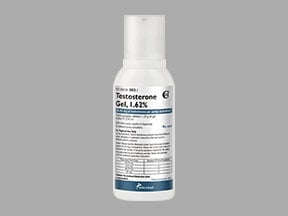
My prescription
Edit
75GM of 1.62%, Testosterone (1 Pump Btl)
Select pharmacy

CVS
$32.61
COUPON PRICE
Walgreens
$39.15
COUPON PRICE
Walmart
$39.85
COUPON PRICE
Albertsons
$46.00
COUPON PRICETestosterone savings card
Show this card to your pharmacist
CVS
$32.61
BIN
ID
PCN
GRP
019876
LH3591F411
CHIPPO
LHX
Powered by
Price history for Natesto (brand) & Testosterone (generic)
1 Pump Btl, 75GM of 1.62%
Average retail price for Natesto
Average retail price for Testosterone
Average SaveHealth price for Testosterone
Our price history data is based on aggregated prescription data collected from participating pharmacies in America. Our prescription data updates daily to reflect the latest price changes. If you notice a missing data point, it means there wasn't sufficient data available to generate a monetary value for that date.
We analyzed Testosterone prices for (75GM of 1.62%, 1 Pump Btl) over the last 12 months. The average retail price was $130.42, while the average price using the SaveHealth discount card was $40.59. That's a savings of approximately 68.88% when using our Testosterone coupon.
Compared to the generic version, Natesto had an average price of $326.49 over the same time period. With the SaveHealth savings card, Testosterone is 87.57% cheaper on average than Natesto.
*Retail prices are based on pharmacy claims data, and may not be accurate when we don't have enough claims.
Testosterone dosage forms
Dosage Quantity Price from Per unit 60GM of 10 MG/ACT(2%) 1 Pump Btl $81.22 $81.22 60GM of 10 MG/ACT(2%) 2 Pump Btls $154.95 $77.47 60GM of 10 MG/ACT(2%) 3 Pump Btls $228.67 $76.22 75GM of 1.62% 1 Pump Btl $32.61 $32.61 75GM of 1.62% 2 Pump Btls $54.92 $27.46 75GM of 1.62% 3 Pump Btls $69.23 $23.08 75GM of 20.25 MG/ACT(1.62%) 1 Pump Btl $32.61 $32.61 75GM of 20.25 MG/ACT(1.62%) 2 Pump Btls $46.92 $23.46 75GM of 20.25 MG/ACT(1.62%) 3 Pump Btls $69.23 $23.08 90ML of 30MG/ACT 1 Pump Btl $47.34 $47.34
| Dosage | Quantity | Price from | Per unit |
|---|---|---|---|
| 60GM of 10 MG/ACT(2%) | 1 Pump Btl | $81.22 | $81.22 |
| 60GM of 10 MG/ACT(2%) | 2 Pump Btls | $154.95 | $77.47 |
| 60GM of 10 MG/ACT(2%) | 3 Pump Btls | $228.67 | $76.22 |
| 75GM of 1.62% | 1 Pump Btl | $32.61 | $32.61 |
| 75GM of 1.62% | 2 Pump Btls | $54.92 | $27.46 |
| 75GM of 1.62% | 3 Pump Btls | $69.23 | $23.08 |
| 75GM of 20.25 MG/ACT(1.62%) | 1 Pump Btl | $32.61 | $32.61 |
| 75GM of 20.25 MG/ACT(1.62%) | 2 Pump Btls | $46.92 | $23.46 |
| 75GM of 20.25 MG/ACT(1.62%) | 3 Pump Btls | $69.23 | $23.08 |
| 90ML of 30MG/ACT | 1 Pump Btl | $47.34 | $47.34 |
| 90ML of 30MG/ACT | 2 Pump Btls | $84.39 | $42.20 |
| 90ML of 30MG/ACT | 3 Pump Btls | $113.43 | $37.81 |
